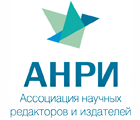DOI 10.17586/0021-3454-2017-60-2-132-135
UDC 347.775
MATHEMATICAL MODEL OF INPUT INFORMATION FLOW IN INFORMATION-ANALYTICAL SYSTEM
St. Petersburg State University of Economics, Department of Information Systems and Technologies;
Read the full article
Abstract. A model is proposed for input flow of information consisting of elementary information fragments, each of the fragment representing a pertinent part of various documents. The pertinence of the processed information document is shown to vary significantly in the range from 70% to 1% or less. An example of the structure of the text information of the document, broken into elementary pieces is presented. It is shown that representation of the document in the form of a Poisson flow allows to solve the planning problem of information processing in the information-analytical system as a problem in the theory of mass service with pertinent fragments being the service requests. The approach is reported to reduce the influence of noise on the quality of the planning process.
Keywords: information paper, basic piece of information, the pertinence, simple flow, queuing theory
References:
References:
- Samushenok T.V. Izvestiya Rossiyskogo gosudarstvennogo pedagogicheskogo universiteta im. A.I. Gertsena, 2008, no. 73 – 1, рр. 12–14. (in Russ.)
- Romashchenko T.D. Ekonomicheskaya bezopasnost' natsional'nogo khozyaystva: teoriya, metodologiya, formirovanie v Rossii (Economic security of national economy: the theory, methodology, formation in Russia), Voronezh, 2003, рр. 37–46. (in Russ.)
- Levkin I.M. Innovatsionnye tekhnologii v servise (Innovative technologies in service), Proceedings of the IV International Scientific and Practical Conference, St. Petersburg, 2015, рр. 14–15. (in Russ.)
- Lazarev A.A., Gafarov E.R. Teoriya raspisaniy. Zadachi i algoritmy (Theory of Schedules. Tasks and Algorithms), Moscow, 2011, рр. 21–46. (in Russ.)
- Conway R.W., Maxwell W.L., Miller L.W. Theory of Scheduling, Addison-Wesley, 1967, 294 p.
- Levin V.I. Strukturno-logicheskie metody v teorii raspisaniy (Structural and logical methods in the theory of schedules), Penza, 2006, рр. 18–41. (in Russ.)
- Butov A.L., Mirgaleev A.T., Konichenko A.V. Informatsionno-izmeritelnye i upravlyayushchie sistemy (Information-measuring and Control Systems), 2012, no. 2 (10), pp. 15–19. (in Russ.)
- Vorob'ev A.I., Kolbanev M.O., Tatarnikova T.M. Journal of Instrument Engineering, 2014, no. 9(57), pp. 15–18. (in Russ.)
- Bogatyrev V.A., Parshutina S.A. Vestnik komp'iuternykh i informatsionnykh tekhnologii (Herald of Computer and Information Technologies), 2015, no. 12(138). (in Russ.)
- Gaydamakin N.A. Avtomatizirovannye informatsionnye sistemy, bazy i banki dannykh (Automated Information Systems, Bases and Databanks), Moscow, 2002, 55 р. (in Russ.)
- Kudryavtsev V.A., ed., Organizatsiya raboty s dokumentami (Organization of work with documents), Moscow, 2001. (in Russ.)
- Lande D.V. Poisk znaniy v Internet (Search for Knowledge in Internet), Moscow, 2005, рр. 78–81. (in Russ.)
- Levkin I.M. Journal of Instrument Engineering, 2014, no. 9(57), pp. 23–26. (in Russ.)
- Zhigulin G.P. Teoriya i praktika prognozirovaniya (Theory and Practice of Forecasting), St. Petersburg, 2011, рр. 91–105. (in Russ.)
- Venttsel' E.S., Ovcharov L.A. Prikladnye zadachi teorii veroyatnostey (Applied Problems of Probability Theory), Moscow, 1983. (in Russ.)
- Hamdy A.T.Operations Research: An Introduction,Pearson Education, Inc.2003.
- Trubetskoy A.I., Levkin I.M., Kolesov V.A. Informatia i kosmos, 2005, no. 1, pp. 50–51. (in Russ.)











